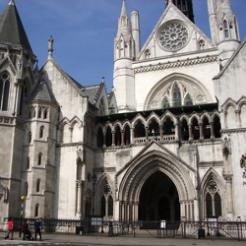Moves to evict non-disabled residents of a charity-run community village who share houses with people with learning disabilities in return for free accommodation, food, and other benefits were temporarily halted by the High Court on Friday after lawyers representing the villagers challenged the changes.
The three claimants, all of whom have learning disabilities, live in homes in Botton Village, North Yorkshire, with non-disabled house-parents (known as co-workers) and, in many cases, their families – a practice which has operated for more than 60 years. Co-workers are not paid for the care they provide but are housed and fed and have some expenses met by the charity, the Camphill Village Trust (CVT).
But according to Bindmans, the law firm representing the Botton residents, last autumn the charity told the co-workers that new information from HMRC meant that from April 2015, all co-workers would be treated as employees for tax purposes. Last month, all co-workers that had refused to accept employee status were given notice to vacate their homes by May or July, and told their financial support from the charity would cease by the end of March.
Bindmans told the High Court on Friday that the changes being imposed by CVT amounted to a breach of the residents’ human rights, because of the close and interdependent relationship that has been built up between all the residents over many years.
The court issued an order temporarily halting the changes. Within the next few days the parties will learn whether permission to bring a judicial review has been granted. If so, the full judicial review hearing will take place within 21 days; if not, a two-day “rolled-up hearing” will still go ahead within 21 days.
The Camphill movement was started more than 70 years ago by German and Austrian Jews fleeing the Nazis, and there are now more than 100 Camphill communities worldwide. CVT was founded in 1954 to support Botton Village, with charitable purposes to create a community where disabled people can live contented and fulfilling lives.
Campaigners against the changes recently imposed on Botton villagers have claimed that CVT has misrepresented HMRC’s position on the tax status of the co-workers, and that it was CVT’s decision to try and force employment on the co-workers.
But the charity insists it is responding to concerns around the quality of care in the Botton community – concerns that others, including the local authority, share.
It also contends that the level of benefits claimed by the co-workershad prompted HMRC to take a keen interest in the case. The co-workers say the charity is liable for the tax due; the charity says the co-workers are.
In a statement Huw John, chief executive of Camphill Village Trust, said: “We recognise that some people have a desire to retain the co-worker model of care at Botton and elsewhere. However, it's clear the model creates issues around financial control and governance, as well as quality of care.
“We have been given clear direction from Her Majesty's Revenue and Customs, the Charity Commission and funders such as North Yorkshire County Council that we must address those issues.
“A block on referrals to Botton, as requested by North Yorkshire County Council, is in place, as it has been for some time. This is because of ongoing, longstanding concerns about the quality of care at Botton.
“We are disappointed to be forced to spend charitable money and further time and energy on legal matters, rather than focusing on people we support and their families.”









